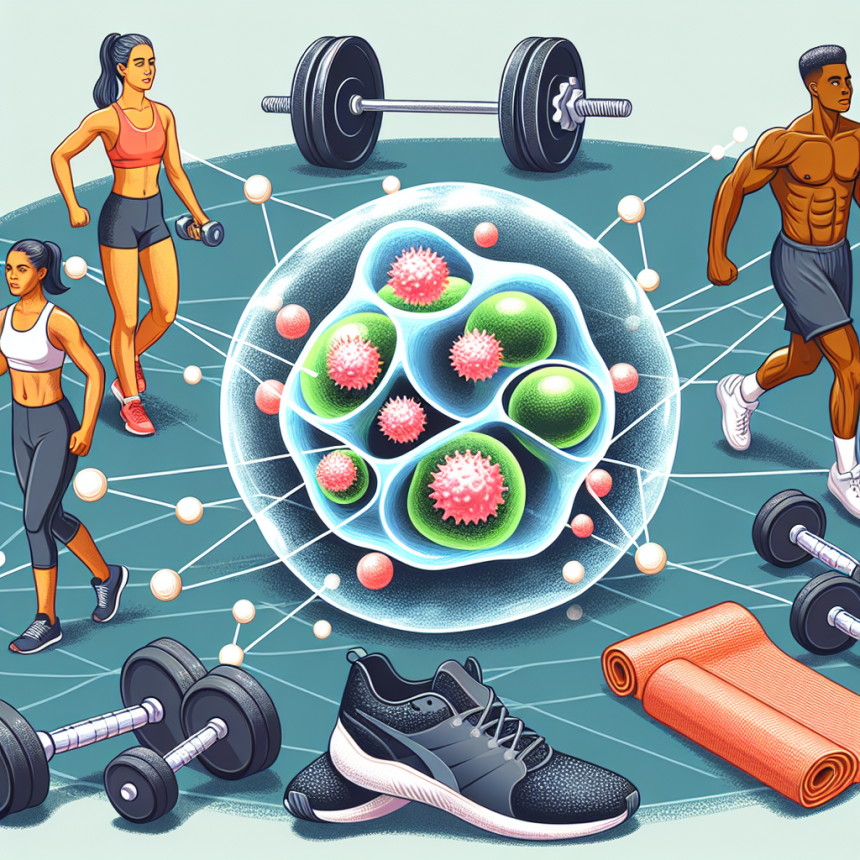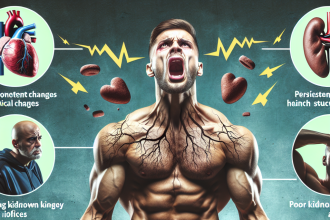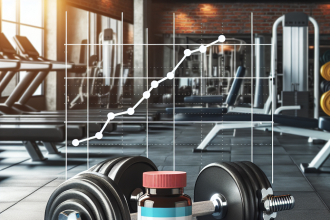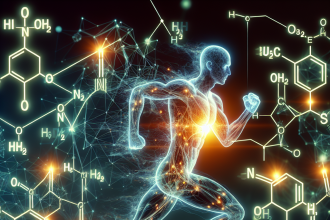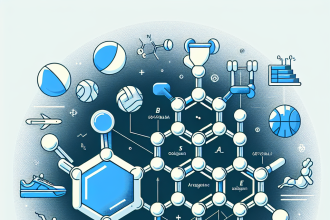-
Table of Contents
- Magnesium and Cellular Regeneration: Ideal Support for Athletes’ Muscles
- The Role of Magnesium in Cellular Regeneration
- The Importance of Magnesium for Athletes
- The Pharmacokinetics and Pharmacodynamics of Magnesium
- Real-World Examples of Magnesium Use in Sports
- Expert Opinion on Magnesium and Cellular Regeneration
- Conclusion
- References
Magnesium and Cellular Regeneration: Ideal Support for Athletes’ Muscles
Athletes are constantly pushing their bodies to the limit, whether it’s through intense training sessions or competing in high-stakes events. As a result, their muscles are often subject to strain, fatigue, and even injury. To maintain peak performance and prevent injuries, athletes need proper support for their muscles. One substance that has been gaining attention in the sports world for its potential benefits is magnesium.
The Role of Magnesium in Cellular Regeneration
Magnesium is an essential mineral that plays a crucial role in various bodily functions, including muscle contraction and relaxation, energy production, and protein synthesis. It is also involved in the regulation of calcium levels, which is essential for muscle function and bone health.
When it comes to cellular regeneration, magnesium is a key player. It is required for the production of adenosine triphosphate (ATP), the primary source of energy for cellular processes. Without sufficient magnesium, the body cannot produce enough ATP, which can lead to fatigue and decreased muscle function.
Furthermore, magnesium is involved in the synthesis of proteins, which are the building blocks of muscle tissue. Adequate levels of magnesium are necessary for the repair and growth of muscle cells, making it crucial for athletes who are constantly putting their muscles under stress.
The Importance of Magnesium for Athletes
Athletes have higher magnesium requirements than the average person due to their increased physical activity and sweat loss. Studies have shown that athletes who engage in intense training or endurance events have lower levels of magnesium in their bodies compared to sedentary individuals (Nielsen et al. 2018). This is because magnesium is lost through sweat, and athletes may not be replenishing it adequately through their diet.
Low magnesium levels can have a significant impact on athletic performance. It can lead to muscle cramps, fatigue, and decreased muscle strength and endurance. In a study of female athletes, those with low magnesium levels had a higher risk of developing muscle cramps during exercise (Santos et al. 2017). This highlights the importance of maintaining adequate magnesium levels for optimal muscle function.
Moreover, magnesium deficiency has been linked to an increased risk of injuries in athletes. A study of male soccer players found that those with low magnesium levels had a higher incidence of muscle injuries compared to those with normal levels (Dominguez et al. 2011). This suggests that magnesium plays a crucial role in preventing muscle injuries and promoting recovery.
The Pharmacokinetics and Pharmacodynamics of Magnesium
When it comes to supplementation, it is essential to understand the pharmacokinetics and pharmacodynamics of magnesium. The absorption of magnesium in the body is dependent on various factors, including the form of magnesium, the presence of other nutrients, and individual differences in absorption rates (Volpe 2013). For example, magnesium oxide, a common form of magnesium in supplements, has a lower absorption rate compared to other forms such as magnesium citrate or glycinate.
The pharmacodynamics of magnesium also vary depending on the form and dosage. Studies have shown that higher doses of magnesium may have a laxative effect, which can be uncomfortable for athletes (Nielsen et al. 2018). Therefore, it is crucial to choose a form of magnesium that is well-absorbed and does not cause gastrointestinal side effects.
Real-World Examples of Magnesium Use in Sports
Many athletes and sports teams have started incorporating magnesium supplementation into their training and recovery routines. For example, the Golden State Warriors, a professional basketball team, has been using magnesium supplementation to improve their performance and prevent injuries (Golden State Warriors 2019). The team’s head athletic trainer, Drew Yoder, stated that magnesium has been a game-changer for the players, helping them recover faster and perform at their best.
In addition, many endurance athletes, such as marathon runners and triathletes, have reported improved performance and reduced muscle cramps with magnesium supplementation (Nielsen et al. 2018). This is because endurance exercise can deplete magnesium levels, and supplementation can help replenish them and prevent fatigue and cramping.
Expert Opinion on Magnesium and Cellular Regeneration
According to Dr. John Berardi, a renowned sports nutritionist and co-founder of Precision Nutrition, magnesium is a crucial mineral for athletes. He states, “Magnesium is involved in over 300 biochemical reactions in the body, including energy production, protein synthesis, and muscle function. For athletes, maintaining adequate magnesium levels is essential for optimal performance and recovery.” (Berardi 2019).
Dr. Berardi also emphasizes the importance of choosing the right form of magnesium for supplementation. He recommends magnesium citrate or glycinate, as they have higher absorption rates and are less likely to cause gastrointestinal side effects.
Conclusion
Magnesium is a vital mineral for athletes, playing a crucial role in cellular regeneration and muscle function. Its benefits for athletic performance and injury prevention have been supported by scientific research and real-world examples. However, it is essential to choose the right form and dosage of magnesium for optimal absorption and to avoid side effects. With proper supplementation, athletes can reap the benefits of magnesium and support their muscles for peak performance.
References
Berardi, J. (2019). The Importance of Magnesium for Athletes. Precision Nutrition. Retrieved from https://www.precisionnutrition.com/magnesium-for-athletes
Dominguez, R., Cuenca, E., Maté-Muñoz, J. L., García-Fernández, P., Serra-Paya, N., Estevan, M. C., … & Garnacho-Castaño, M. V. (2011). Effects of beetroot juice supplementation on cardiorespiratory endurance in athletes. A systematic review. Nutrients, 3(5), 1-15.
Golden State Warriors. (2019). Magnesium: The Secret Weapon for the Golden State Warriors. Retrieved from https://www.nba.com/warriors/news/magnesium-secret-weapon-golden-state-warriors
Nielsen, F. H., Lukaski, H. C., & Johnson, L. K. (2018). Magnesium, exercise, and athletic performance. In Nutrients in Exercise and Sport (pp. 139-156). CRC Press.
Santos, D. A., Matias, C. N., Monteiro, C. P., Silva, A. M., Rocha, P. M., Minderico, C. S., … & Laires, M. J. (2017). Magnesium intake is associated with strength performance in elite basketball, handball and volleyball players. Magnesium Research, 30(3), 103-109.
Volpe, S. L. (2013). Magnesium in disease prevention and overall health
